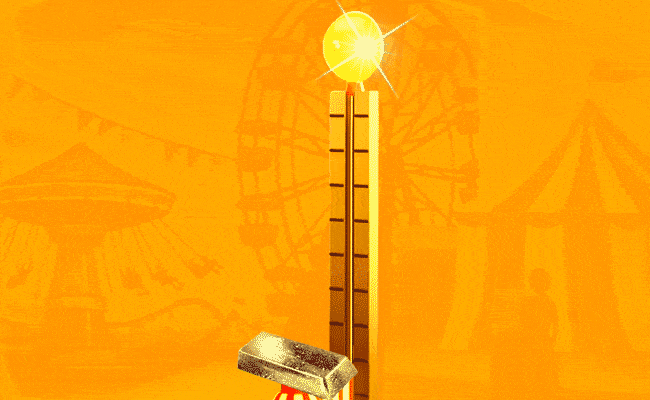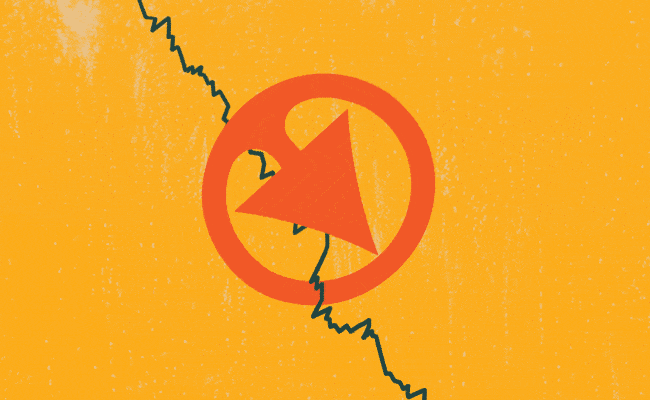Asief Mohamed’s journey to running his own asset management company for the past two decades started, as so many good entrepreneur tales do, with a firing. His own, to be precise.
And yet, the reason Mohamed was booted from his role as chief investment officer at Metropolitan Asset Managers in 2004 makes for striking irony in an industry where the marketing message is always: don’t panic, stay the course.
“For the two years before I got fired, the performance [of our funds] dropped significantly. It was largely because we were overweight resources then,” Mohamed tells Currency in an interview.
Metropolitan’s board, all seasoned directors, weren’t going to tolerate that, so they axed him. “The problem with independent non-executive directors is that they’re not at the coalface of investments; they think it’s easy, so they tend to have knee-jerk reactions,” says Mohamed.
It’s a fascinating insight into the behind-the-scenes conflict at what was then one of the country’s most prominent money managers; despite the public message to “ride out tough investment periods”, internally it was evidently too much to bear.
It’s one of the reasons that Mohamed believes that 75% of fund managers never manage to beat their benchmarks once fees are deducted.
“They go through a period of underperformance and then what they do is change the people at the top, and the new CIO comes in, and they change the portfolio. But if they’d just kept the portfolio as is, they would have outperformed,” he says.
The boards, with short memories and too fragile when it comes to criticism, typically haven’t been through these cycles, so they tend not to see this picture.
The reality is that patience is everything, says Mohamed. “Your view might not pan out in a year and sometimes it is wrong, but in most cases it takes a year, or two, or four, to materialise.”
Of course, that sort of sanguine approach is easier said than done – especially if others are regularly trouncing you in the performance tables.
“It’s very short-term focused and unfortunately, investment professionals fall into this trap where they then try and correct their mistake by making a double mistake,” says Mohamed.
‘The art of investment’
This isn’t what you’ll hear from too many investment houses, mostly because the professionals doing the actual work don’t want to anger their boards. But someone like Mohamed, 63, has no problem rattling sabres.
The company he founded after leaving Metropolitan, Aeon Investment Management, is now 20 years old, and has earned a formidable reputation as one that never pulls its punches when criticising corporate behaviour when it’s needed.
In part, this is because Mohamed has got the mix right. He argues that any good asset manager will have a judicious mix of young people with energy, and older, experienced hands who’ve seen the movie before.
He cites David Swensen, the legendary Yale endowment fund manager who took the ultimate long-term view. “He went in very early when no-one else wanted to go in – like into hedge funds and alternative assets – and the reason he could produce excess returns was because it wasn’t a crowded trade,” he says.
Today, of course, everybody is talking about hedge funds. But it’s the deep thinkers who got in early, and saw something nobody else did, that made the running.
Ultimately, says Mohamed, you want people enticed by the “art of investment”, eager to immerse themselves in this sector. “This might sound arrogant but you need people who have a passion for this – who live and breathe investments and who have an intuitive sense for investments.”
And, sadly, some people just don’t have a feel for it. Or even a real streetwise sense of how the markets work in practice.
“What we do when we interview people, and even people with CFAs, we ask them the coffee shop question. And a lot of them get it wrong,” says Mohamed.
The coffee shop question? What even is that?
“Basically you say: here’s a coffee shop – what would you pay for it, if the coffee shop makes a profit of R1m a year? I’ve had someone who was a CFA charterholder who told me they’d pay R200m for it,” he explains.
“And then you ask them afterwards: what is the 10-year risk-free rate in South Africa – they don’t know, and they already work at a large asset manager.”
(The right answer to the question, according to Mohamed, is a price multiple of about three times. In other words, you’d offer to pay R3m for the coffee shop.)
But it illustrates that so many people working in investments don’t understand the basic concept of value, even though it’s critical to their job.
Mohamed argues that there’s no magical formula to calculate whether a stock will be a good or bad investment. Luck plays a much bigger role than experts would like, for one thing. But still, there are a couple of objective factors to look for.
“Typically we would look at implied growth versus sustainable growth – in other words, what’s really priced into a share. And then we’d do a discounted cash flow which everybody else does; we evaluate management – is this someone you trust; can the business scale; can it grow revenues and increase operating margins over a period of time; and do you understand the business model,” he says.
Once you put it all together, you can make a decision — “and if you get 60% right, that’s brilliant”.
Dodging Steinhoff
So how did Mohamed go from the disappointment of Momentum to starting Aeon?
It was, he says, just the push he needed to “to get off my backside and do my own thing”. The first 10 years of Aeon’s life were hardly smooth sailing, but by the end of that decade, the company was managing a not-inconsiderable R1bn of assets.
Today, 20 years later, it is managing more than R27bn, all from pension funds and institutions.
Mohamed credits three factors for the company’s durability. “We were focused on performance, we were obsessive about client service and already then we were integrating ESG into our investment process,” he says.
ESG, thanks in part to Donald Trump’s war on “woke capitalism”, has become something of a swear word in the US. But for Aeon, ESG and “governance” in particular, was vital to helping it dodge some of the worst corporate disasters.
“Steinhoff, Ascendis, Tongaat – ESG helped us avoid all that,” he says.
Still, the company’s growth has presented new problems. In particular, how do you, as a larger asset manager, invest in a market that is shrinking the way the JSE has over the past 25 years. The bourse once had more than 600 companies; today there are barely 300.
And many of these companies on the JSE are smaller stocks anyway – which asset managers tend to avoid. Should these investment managers not take a greater interest in smaller shares then, given the narrowing field?
Mohamed says there are good reasons that asset managers ignore the smaller shares, citing Aeon’s investment in the construction company WBHO.
“It’s done phenomenally well, but now we look at it, and say: ‘Okay, yes, it’s a cyclical industry and if this government spend is going to happen, as they say, it should be a beneficiary of it.’ But then we look at the liquidity, and we can’t buy more because we’re going to push up the share price,” he says.
Equally tricky is that if Aeon wanted to sell WBHO, it wouldn’t be easy to find another large investor keen to take such a big chunk of a small company.
“So, we have to be in big counters. That’s why, 15 years ago, we already invested offshore because the South African market is just becoming uninvestable in terms of the number of shares. We’re down to probably 60 investable shares, and we have 30 in our portfolio,” he says.
But is that, right there, not a great opportunity for retail investors?
Potentially, says Mohamed. “Provided they do the research and they do it well, and they read the markets well – then it will work for them.”
Hot tip: ignore the tips
Mohamed’s best trade was in an unloved small-cap stock, Metrofile, which used to be called MGX. Back in 2004 the debt-heavy company was forced into a restructuring and the share price collapsed from about R40 to just 10c.
“I was leaving Metropolitan and read Business Day, and there was a big announcement about MGX refinancing. This is why I say that luck is important, because I went to buy some currency for my daughter who was going overseas, and I saw some Metrofile boxes there – and thought, okay this is interesting.”
There were Metrofile boxes at Investec, too, which he visited on business around the same time. He realised that Metrofile wasn’t really a storage company; it was a property company.
“What you could do was stack up all the boxes, seven storeys high in a warehouse, and they were charging R2 per box per month, and you multiplied that out, and it was much higher than the rental per square metres – like 10 or 20 times,” he says.
Mohamed still owns the shares he bought 21 years ago in his personal capacity, and is waiting for the conclusion of a buyout offer to offload his haul.
Nonetheless, his hot investment tip is: never buy a share on a tip.
He describes how he was horribly burnt when he took R2,000 – three months’ salary back in the 1980s — to snap up shares in Loucas Pouroulis’s Lefkochrysos Platinum. The company listed in a blaze of glory, then flamed out.
And the one that got away? Capitec, the banking stock whose shares have catapulted 18,350% over the past 20 years, from R19 per share to R3,507.
Mohamed tells a story of how, when he was still at Metropolitan, he and another analyst went to see Capitec founder Michiel le Roux to discuss investing in the fledgling lender.
Mohamed was struck by the total lack of paper on Le Roux’s desk and office. The idea, to have a simple paperless approach to signing up customers, was genius.
“But I couldn’t convince the analyst to buy the share – I’m a lot more direct nowadays,” he says.
It’s taken him a full 20 years to actually buy some Capitec shares of his own. Asked why he waited so long, Mohamed says: “Because the valuation was always a problem, but we made a mistake: we didn’t see it as a platform business.”
The reality is that Capitec today sells about a third of the country’s entire airtime through its bank channels – something which escapes many analysts.
But more than anything, it was Capitec’s profit imperative that impressed Mohamed. “I always say: Capitec banked the unbanked without the transformation imperative. The profit imperative was the thing.”
It’s a strategy that resonates with a man who grew up in humble circumstances on the Cape Flats. “I strongly believe in the profit imperative in South Africa. So, we as an asset management firm say that we have to get in there because we can compete with the best in our peer group whether it’s local or global,” he says.
That, he says, is the driving force that keeps him going.
This story was produced in partnership with Stanlib.
Sign up to Currency’s weekly newsletters to receive your own bulletin of weekday news and weekend treats. Register here.











You can correctly call Capitec a platform and conclude that it sells airtime and funeral policies, but you should never forget that it has R100 billion in unsecured loans, including with AvaFin in risky jurisdictions. Valuing it like an IT company when it still maintains the risk of a bank is a mistake analysts make.